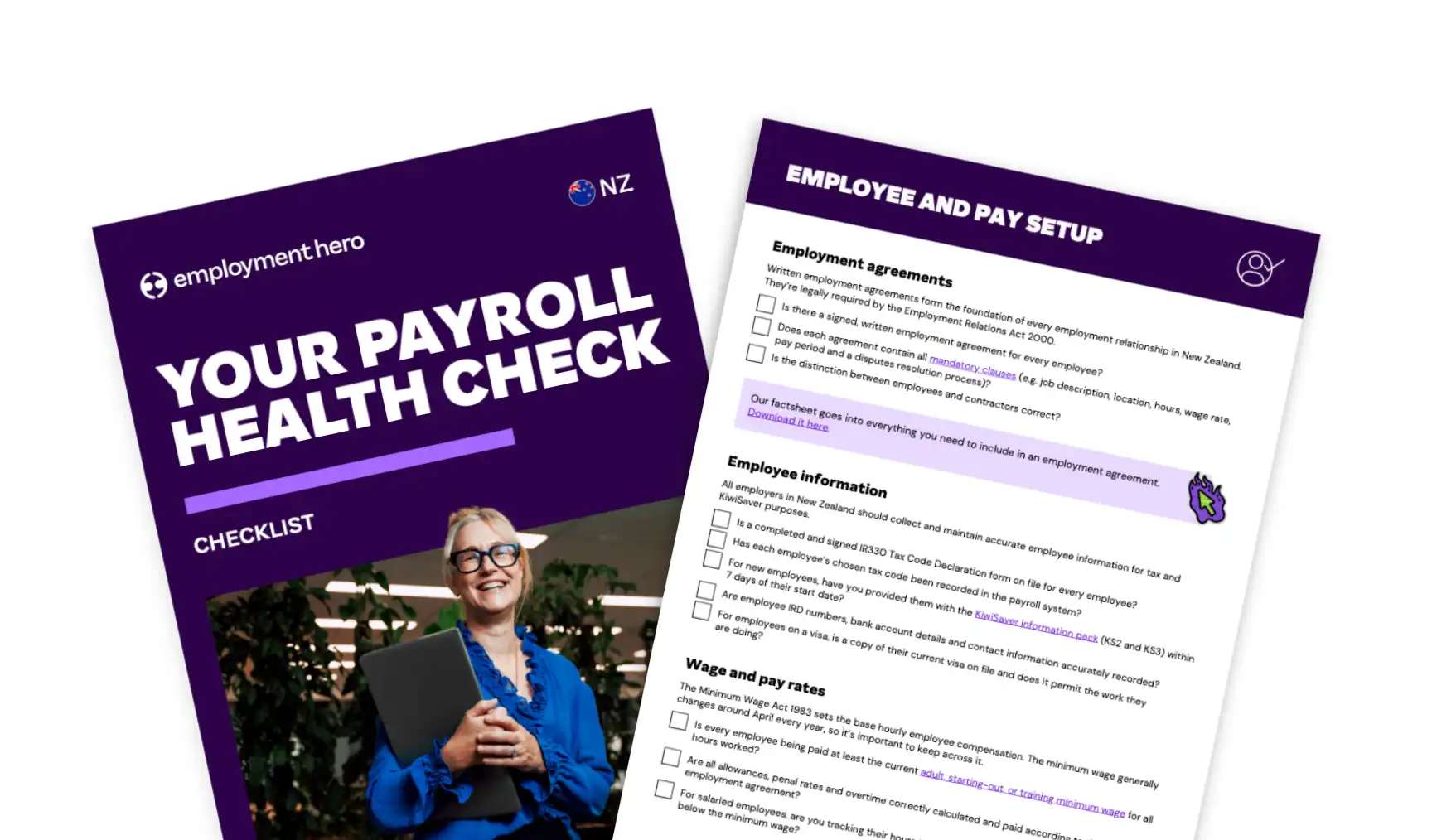Business Analyst job description: Duties, skills and responsibilities
Published
Business Analyst job description: Duties, skills and responsibilities
Published
2 min read
Business Analysts are essential in bridging the gap between technical solutions and business objectives. They identify opportunities for process improvements, drive cost efficiencies and align strategies with company goals.
If you’re aiming to hire a Business Analyst, this guide will help you craft a concise, effective job description that attracts skilled candidates ready to make a difference in your organisation.
Business Analyst job duties and responsibilities
Business Analysts act as the link between internal stakeholders, systems and projects to deliver improved outcomes. Their work involves significant research, problem-solving and collaboration to meet organisational needs effectively.

Key responsibilities for a Business Analyst include:
- Strategic planning and analysis
- Collect and interpret data to assess current business processes and identify improvement areas.
- Develop detailed business cases supported by relevant data to recommend effective solutions.
- Collaborate with stakeholders to identify company objectives and align them with actionable strategies.
- Requirements gathering and documentation
- Work with teams to define and document business needs, technical specifications and solution requirements.
- Translate complex business processes into key deliverables using flow charts, diagrams and technical documentation.
- Ensure clarity and consistency in requirements to streamline communication between stakeholders and developers.
- Project support
- Act as a liaison between technical teams, vendors and business units to ensure an accurate understanding of goals.
- Monitor project milestones, timelines and deliverables to ensure alignment with expectations.
- Support testing efforts and validate that solutions meet business needs.
- Performance monitoring and reporting
- Develop and provide dashboards to track key performance indicators (KPIs).
- Analyse project outcomes to ensure they meet predefined business objectives.
- Recommend adjustments to projects based on performance metrics or unforeseen challenges.
- Relationship building
- Foster strong relationships with stakeholders to ensure continuous process improvement.
- Communicate findings and project updates clearly and persuasively to executive teams.
- Ensure that proposed solutions align with organisational priorities through ongoing collaboration.
Concerned about an influx of applications? Employment Hero’s recruitment software is designed to help Small-to-Medium Enterprises manage the entire process.
What should be included in a Business Analyst job description?
To craft an effective job description, ensure that you include these key elements:
- Position summary: Provide an overview of how this role contributes to the organisation’s success.
- Core responsibilities: List key tasks and expectations, such as data collection, requirements documentation and stakeholder collaboration.
- Required skills: Identify technical competencies and soft skills that align with the role, such as systems analysis and strong communication abilities.
- Qualifications and experience: Highlight essential educational and professional credentials.
- Work environment details: Share whether the role includes hybrid work, travel requirements or specific project commitments.
- Call-to-action: Provide applicants with clear instructions on how to apply.
Including these guidelines will ensure that candidates fully understand the scope of the role and its importance to the organisation.
Example of a job description
We are seeking a strategic and detail-oriented Business Analyst to join our organisation. This role is critical in aligning operational capabilities with company goals through detailed analysis and collaboration.
Key responsibilities:
- Work closely with stakeholders to identify key business objectives and translate them into actionable insights.
- Analyse existing processes to uncover efficiency gaps, process bottlenecks and opportunities for improvement.
- Document requirements and workflows clearly to maintain alignment across departments.
- Provide consistent project updates, dashboards and presentations to stakeholders.
- Collaborate with development teams to test changes and measure their impact.
Requirements:
- Bachelor’s degree in Business Administration, Data Science or a related field.
- 3–5 years of experience in business analysis or a related role.
- Competency in tools such as SQL, Tableau, Microsoft Excel and project management software.
- Advanced data visualisation skills to align complex insights with strategic objectives.
- Exceptional problem-solving and communication skills to liaise effectively across teams.
Work environment:
- Hybrid working environment with remote work opportunities.
- Occasional travel to project sites or client meetings may be required.
If you excel at balancing strategic acumen with technical disciplines, we’d love to hear from you!

What is the best way to screen candidates?
Finding the right Business Analyst requires assessing a candidate’s analytical mindset, technical skill and ability to collaborate effectively. To streamline candidate evaluation, consider the following steps:
- Resume assessment: Spot experience in similar roles, particularly those requiring data analysis and process improvement. Verify competency with technical tools like SQL, Tableau or Microsoft Excel.
- Core skills testing: Conduct exercises to gauge proficiency in data modelling or analytical reporting. Assign tasks where candidates must document workflows or deliver requirement specifications.
- Scenario-based questions: Use interview questions testing their approach to resolving poorly-defined project requirements. Ask candidates how they balance competing stakeholder priorities when defining project scope.
- Soft skill evaluation: Look for examples of effective communication during their client or stakeholder collaboration. Assess how well their personal values align with your company culture.
Streamline your process with Employment Hero’s tailored recruitment tools. Get connected with pre-qualified candidates ready to make an impact.
Employment Hero gives you a talent pool with millions of active job-seekers, ready and waiting to work – without the need for any job ads

Instant matches, no waiting
Skip the job ads. Every role gets a live shortlist of quality candidates, instantly matched from a network of over 1 million active job-seekers.

Cut costs, hire smarter
Reduce recruitment spend and time-to-hire by up to two weeks. With candidates built in, there’s no need for costly ads or long delays.

From sourcing to onboarding
SmartMatch handles the entire hiring journey: sourcing, shortlisting, and onboarding. That’s time back to focus on growing your team.
What skills should a Business Analyst have?
To drive organisational improvements and deliver actionable insights, Business Analysts require a mix of technical and interpersonal skills.
Key skills
- Data proficiency: Advanced Microsoft Excel and SQL knowledge. Familiarity with data visualisation tools like Tableau or Power BI.
- Analytical thinking: Expertise in identifying inefficiencies or cost-saving techniques and an ability to connect finer details with strategic goals.
- Communication and collaboration: Efficiency in liaising with diverse teams and stakeholders as well as the capability to explain complex findings in clear, actionable terms.
Tailor the skills list to suit your organisation’s priorities and systems to attract the most relevant candidates.

What qualifications should a Business Analyst have?
Though experience often outweighs formal education, the following qualifications are commonly valued:
- Education: Bachelor’s degree in Business Administration, Data Science or an equivalent field.
- Technical certifications: Certifications like CBAP (Certified Business Analysis Professional) or IIBA (International Institute of Business Analysis).
- Experience: Proficiency demonstrated through 3–5 years of functional analysis, project management or data analytics roles.
By clearly defining expectations, you’ll better align with candidates who match your specific needs.
Found a candidate and ready to make an offer? Download our Employment Offer Letter Template to streamline the process.
Should Business Analysts be required to have any specific education or training?
Generally, a Bachelor’s degree in Business Administration, Data Science, Information Technology or a related field is a common requirement for Business Analyst roles in New Zealand.
For entry-level Business Analyst positions, a relevant Bachelor’s degree might be sufficient, especially if accompanied by internships or practical experience in data analysis or business processes.
For mid-level Business Analysts, in addition to a Bachelor’s degree, employers often look for 3-5 years of experience in functional analysis, project management or data analytics. Technical certifications such as CBAP (Certified Business Analysis Professional) or IIBA (International Institute for Business Analysis) are highly valued and can demonstrate a commitment to the profession.
For senior-level or lead Business Analyst roles, a Master’s degree in a related field might be preferred, alongside extensive experience (5+ years) and a proven track record of successfully leading complex projects, driving significant process improvements and demonstrating strong strategic thinking. Relevant certifications are also increasingly important at this level.
Continuous learning through workshops, online courses and industry-specific training is also highly beneficial for Business Analysts at all levels to stay updated with evolving technologies and methodologies.
Hire fast. Hire right. All in one place with Employment Hero
For small businesses, hiring can feel like a full-time job on top of everything else. Sorting through irrelevant applications. Chasing down resumes. Coordinating interviews across packed calendars. When the right person finally comes along, you need to be ready. The best candidates aren’t on the market for long, and drawn-out processes can mean missing out altogether.
That’s why it pays to have an all-in-one Employment Operating System do the heavy lifting. With Employment Hero you can:
- Attract better candidates. Get your role in front of the right people – even if they’re not actively looking – with smart tools that go beyond traditional job boards.
- Cut down on manual work. Automate job ads, track applicants in one place, and use built-in tools to shortlist efficiently.
- Keep things moving. With structured scorecards and a clear hiring workflow, your team can make confident decisions, fast.
- Set new hires up for success. Digital contracts and tailored onboarding workflows help new team members hit the ground running.
It’s not about adding more steps – it’s about simplifying the right ones, so you can make better hires, faster.
Whether you’re hiring your first employee or growing your team, Employment Hero’s all-in-one Employment Operating System helps you focus on what matters: finding great people and getting them through the door.
Frequently asked questions about Business Analyst roles
Typical activities include gathering requirements, analysing workflows and creating performance insights that help streamline operations.
Provide transparent growth trajectories, workplace flexibility and access to advanced tools for professional enhancement. Build your Employee Value Proposition with our downloadable worksheet.
Analytical thinking, combined with communication skills, allows them to bridge technical processes to business goals effectively.
Register for the Template.
Related Resources
-
 Read more: Payroll audit checklist for New Zealand businesses
Read more: Payroll audit checklist for New Zealand businessesPayroll audit checklist for New Zealand businesses
Published Published There are so many different elements that go into payroll, whether it’s deductions, payday filing or leave calculations.…
-
 Read more: Pay secrecy law explained
Read more: Pay secrecy law explainedPay secrecy law explained
Discover what NZ’s pay secrecy law means for your business, and what steps you need to take to be ready…





















